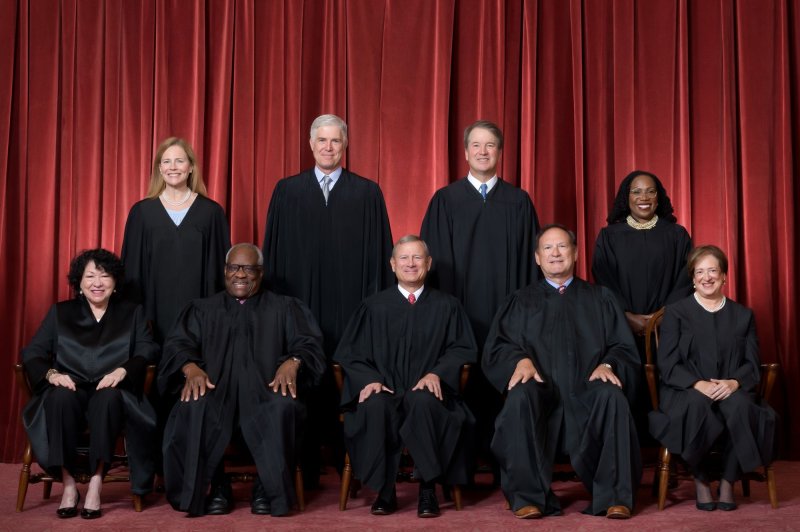1 of 2 | The U.S. Supreme Court will not hear the appeal of a death row inmate in Louisiana who claims evidence was withheld that would have helped him in a lower court. File Photo by Fred Schilling/UPI |
License Photo
April 3 (UPI) -- The U.S. Supreme Court on Monday said it will not hear the appeal of a death row inmate in Louisiana who claims evidence was withheld that would have helped him in a lower court.
The high court ruled 6-3 to deny the petition for an appeal for David Brown, who was convicted in the killing of corrections officer Capt. David Knapps during an attempted escape from the Louisiana State Penitentiary in 1999. A state judge overturned Brown's death sentence but Monday's decision by the Supreme Court overrules the lower court's decision.
Brown claims that, although he was a part of the escape plan with four other inmates, he did not take part in killing Knapps. Co-defendant Barry Edge confessed to killing Knapps with another co-defendant, Jeffrey Clark, but this information reportedly was not disclosed until after Brown's sentencing.
State prosecutor's contended that, though Edge confessed to the killing and that Clark was involved, he did not explicitly say Brown was not present at the time or not involved.
The Supreme Court's decisions fell along party lines with liberal justices Ketanji Brown Jackson, Sonia Sotomayor and Elena Kagan dissenting.
In her dissenting opinion, Jackson argued that the prosecution violated Brown's constitutional rights by withholding the confession from his legal counsel, citing the decision in Brady v. Maryland. That case set the precedent that the prosecution must turn over all evidence that may exonerate the defendant.
"This court established decades ago that evidence is favorable in the Brady context if it has 'some value' in helping the defendant's case," Jackson wrote.
"Here, Edge's confession satisfies the favorability test: By inculpating Edge and Clark in the victim's death -- without any mention of Brown -- the confession supports an inference that Brown was not one of the individuals who killed or decided to kill the victim."
Jackson noted the court had reversed the decisions of lower courts, "and Louisiana courts, in particular," for similar actions by the prosecution.
The six conservative justices on the court did not agree with Jackson, instead determining that the confession was not "favorable" to Brown, Newsweek reports.















